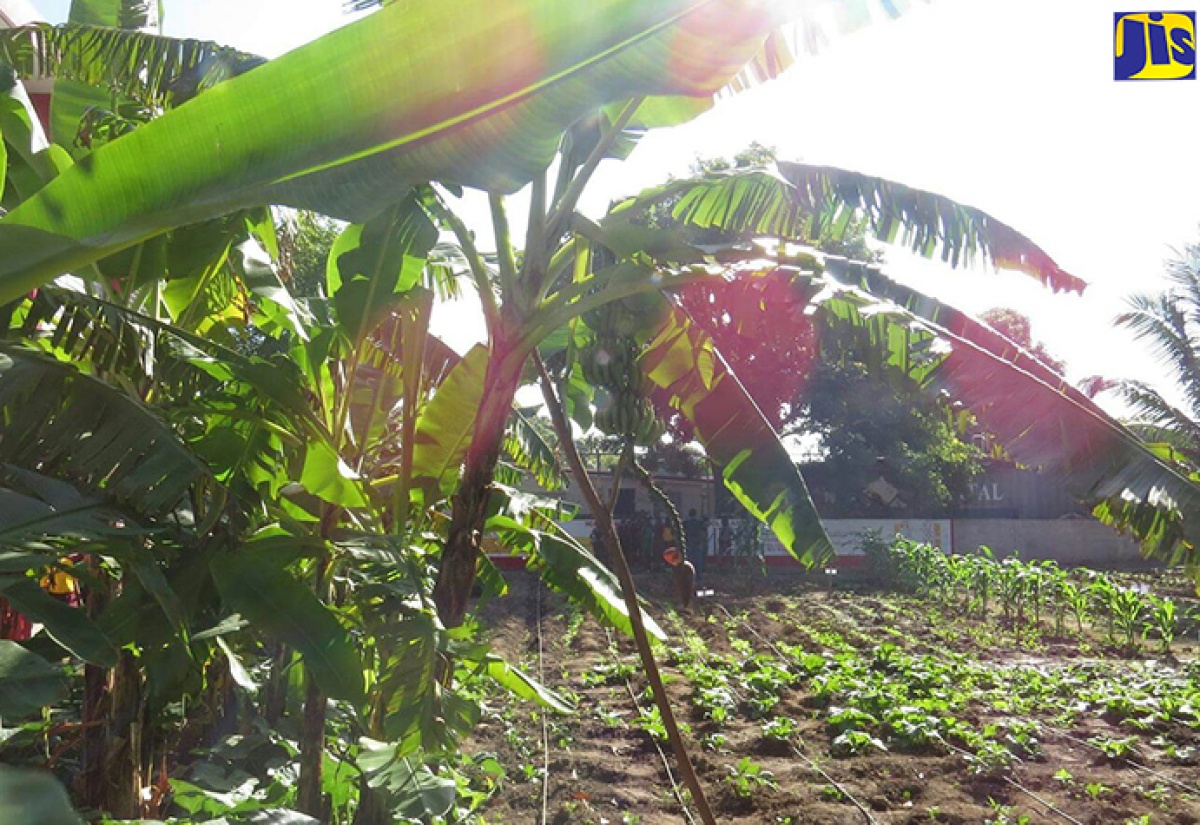Vegetable Garden Set up at Independence City Primary
By: , January 29, 2017The Key Point:
The Facts
- “We are going to learn to eat what we grow and grow what we eat and I know that you are going to do well in the project,” he said.
- “Most of what we eat and grow, they didn’t start growing here, they came from other countries, so we are going to be learning about other countries as we learn about our food,” he noted.
The Full Story
A vegetable garden has been established at Independence City Primary School in Portmore, St. Catherine, which will support the feeding programme at the institution, while helping the students gain an appreciation for the environment.
Among the crops in the gardens are sweet pepper, hot pepper, onion, pumpkin, banana, corn, beetroot and carrot.
The project falls under a biodiversity awareness programme coordinated by the Natural History Museum of Jamaica (NHMJ), a division of the Institute of Jamaica (IOJ) and sponsored by TransJamaican Highway Limited.
Independence City Primary is the third school to benefit from the project, which began in 2012 at the Chandler’s Pen Primary School in Clarendon, with the setting up of a medicinal plant garden comprised of aloe vera, leaf of life, mint, and tuna cactus.
A vegetable garden has also been established at Freetown Primary in Clarendon and similar gardens are to set up at Rosewell Primary and Moore’s Primary in the parish.
At the handover of the Independence City Primary project on Thursday (Jan. 26), the school received tools to be used in the maintenance of the garden.
The school was also presented with a copy of the resource booklet titled: ‘Vegetable Gardens, A Tool for Biodiversity Education in Jamaican Schools’, developed by the Education Department of the NHMJ.
Assistant Education Outreach Officer at the NHMJ, Kristina Silvera, told JIS News that the garden will supply food for the school canteen, help to generate revenue from the sale of produce, and also serve as a tool for biodiversity education.
Apart from learning to appreciate the environment, she said that students will be educated about the different plants and animals in Jamaica and the role that they play in maintaining the environment.
“It is to teach children in the environmental clubs about biodiversity-related topics so that they will be good stewards and protect the biodiversity that we have in Jamaica,” she added.
Executive Director of the IOJ, Vivian Crawford, in his remarks, encouraged the students and teachers to maintain the garden.
“We are going to learn to eat what we grow and grow what we eat and I know that you are going to do well in the project,” he said.
Mr. Crawford noted that students will also be taught about the geographical origins of food crops.
“Most of what we eat and grow, they didn’t start growing here, they came from other countries, so we are going to be learning about other countries as we learn about our food,” he noted.
He pointed out, for example that the Bombay mango, which came from India, was first planted at Castleton Gardens, St. Mary, while coffee, which came from Africa, was originally grown in Golden Spring, St. Andrew.


